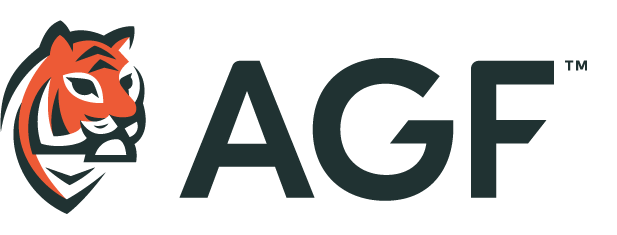by Greg Valliere, AGF Management Ltd.

Insights and Market Perspectives
THERE’S A LONG LAUNDRY LIST of objectives, many focused on trade. Biden is expected to formally launch the Indo-Pacific Economic Framework, his signature regional trade initiative, while in Tokyo. Japan, South Korea, Australia and New Zealand are expected to be part of the initial launch.
THERE WILL BE MEETINGS OF THE SO-CALLED “QUAD,” an informal geopolitical grouping that includes the U.S., India, Australia and Japan, designed to counter China’s rising economic, diplomatic and military power in the region.
A MAJOR GOAL OF THE TRIP is to improve U.S. relations with India, which has disappointed Washington with its refusal to condemn Russia’s invasion of Ukraine. Another goal is to improve ties between Japan and the new conservative government in South Korea.
THE BIGGEST GOAL, OF COURSE, is to send a message to China, which is showing more overt support for North Korea. The U.S. will signal that security alliances with allies in the region are rock-solid; last month, North Korean leader Kim Jong Un and his powerful sister, Kim Yo Jong, announced an aggressive military buildup, focusing on nuclear missile tests. Many experts fear the Kims may test a weapon during Biden’s visit.
THE WAR OF WORDS BETWEEN CHINA AND THE U.S. comes as antipathy toward Beijing persists in Washington. There’s a bipartisan consensus in this city that China should be shunned because of its treatment of dissidents, its refusal to show transparency on how the Covid virus developed, its spying on U.S. firms and its continued threats against Taiwan.
BIDEN HAS HINTED THAT TRUMP-ERA SANCTIONS against China could be eased as part of a larger deal, but our sources say Biden is reluctant to play that card because of the inevitable political downsides in the U.S. An easing of sanctions would expose the president to charges that he’s “soft on China.”
IN LIGHT OF THE ENORMOUS SANCTIONS and military pushback against Russia, it’s unlikely that Chinese President Xi will seek a Taiwan takeover anytime soon. But the China-Russia-North Korea alliance is a source of major concern in Washington, especially as the threat from Pyomjong grows.
THE INVESTMENT PLAY IN THIS COMPLICATED NARRATIVE is a continued ramp-up of defense spending by the U.S. Biden’s initial call for about $813 billion in total Pentagon outlays in the next fiscal year almost certainly will be increased by Congress, with an emphasis on ship-building and replenishing U.S. fighter jets.
The views expressed in this blog are provided as a general source of information based on information available as of the date of publication and should not be considered as personal investment advice or an offer or solicitation to buy and/or sell securities. Speculation or stated believes about future events, such as market or economic conditions, company or security performance, or other projections represent the beliefs of the author and do not necessarily represent the view of AGF, its subsidiaries or any of its affiliated companies, funds or investment strategies. Every effort has been made to ensure accuracy in these commentaries at the time of publication; however, accuracy cannot be guaranteed. Market conditions may change and AGF accepts no responsibility for individual investment decisions arising from the use of or reliance on the information contained herein. Any financial projections are based on the opinions of the author and should not be considered as a forecast. The forward looking statements and opinions may be affected by changing economic circumstances and are subject to a number of uncertainties that may cause actual results to differ materially from those contemplated in the forward looking statements. The information contained in this commentary is designed to provide you with general information related to the political and economic environment in the United States. It is not intended to be comprehensive investment advice applicable to the circumstances of the individual.
AGF Investments is a group of wholly owned subsidiaries of AGF Management Limited, a Canadian reporting issuer. The subsidiaries included in AGF Investments are AGF Investments Inc. (AGFI), AGF Investments America Inc. (AGFA), AGF Investments LLC (AGFUS) and AGF International Advisors Company Limited (AGFIA). AGFA and AGFUS are registered advisors in the U.S. AGFI is a registered as a portfolio manager across Canadian securities commissions. AGFIA is regulated by the Central Bank of Ireland and registered with the Australian Securities & Investments Commission. The subsidiaries that form AGF Investments manage a variety of mandates comprised of equity, fixed income and balanced assets.
About AGF Management Limited
Founded in 1957, AGF Management Limited (AGF) is an independent and globally diverse asset management firm. AGF brings a disciplined approach to delivering excellence in investment management through its fundamental, quantitative, alternative and high-net-worth businesses focused on providing an exceptional client experience. AGF’s suite of investment solutions extends globally to a wide range of clients, from financial advisors and individual investors to institutional investors including pension plans, corporate plans, sovereign wealth funds and endowments and foundations.
For further information, please visit AGF.com.
©2022 AGF Management Limited. All rights reserved.
This post was first published at the AGF Perspectives Blog.













